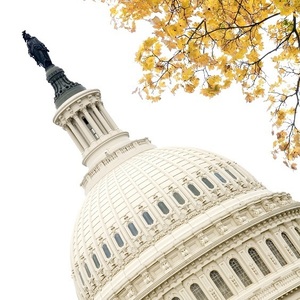Debt ceiling package limits impact of SAF, clean fuel tax credits

April 27, 2023
BY Erin Krueger
The U.S. House of Representatives on April 26 narrowly approved a debt ceiling package that significantly reduces the application of—but does not completely repeal—the clean fuel and sustainable aviation fuel (SAF) tax credits established by the Inflation Reduction Act. It also allows the existing blenders tax credit (BTC) for biodiesel and renewable diesel to remain in place through 2024.
The original debt ceiling bill, titled the Limit, Save and Grow Act of 2023, aimed to completely repeal the existing biodiesel/renewable diesel tax credit and the newly established SAF and clean fuels tax credits. Several Midwest lawmakers worked to amend the legislative package and preserve various tax credits that support the growing U.S. biofuels industry.
The SAF tax credit, as established by the IRA, supports the production and use of SAF by creating a $1.25 per gallon credit for SAF that achieves a 50 percent greenhouse gas (GHG) reduction when compared to a baseline fossil fuel. An additional 1 cent per gallon is available for each percentage point by which the lifecycle GHG emission reduction of the fuel exceeds 50 percent. The tax credit is capped at $1.75 per gallon. The Clean Fuel Production Tax Credit, also established by the IRA, is a technology-neutral tax credit that aims to support the production of low-emissions transportation fuel. It currently applies transportation fuel produced and sold in 2025, 2026 and 2027. To qualify, the fuel must achieve a GHG reduction of approximately 40 percent when compared to diesel.
Advertisement
Advertisement
The amended version of the Limit, Save and Grow Act allows the $1 per gallon BTC for renewable diesel and biodiesel to remain in place through 2024, but significantly limits the impact of the SAF and clean fuel tax credits. Only taxpayers who entered into a binding written contract or made other concrete investment action in SAF or clean fuel projects between Aug. 26, 2022, and April 19, 2023, will be eligible to claim those credits.
Clean Fuels Alliance America issued a statement April 26 thanking Reps. Mark Alford, R-Mo.; Angie Craig, D-Minn.; Randy Feenstra, R-Iowa; Brad Finstad, R-Minn.; Michelle Fischbach, R-Minn.; Ashley Hinson, R-Iowa; Marianette Miller-Meeks, R-Iowa; Zach Nunn, R-Iowa; Adrian Smith, R-Neb.; and Derrick Van Orden, R-Wisc.; for sponsoring and supporting amendments to preserve the biodiesel and renewable diesel blender tax incentive.
Advertisement
Advertisement
“The clean fuels industry thanks all of the House members who sought to preserve predictability and stability in tax policy,” said Kurt Kovarik, vice president of federal affairs with Clean Fuels. “The biodiesel, renewable diesel and sustainable aviation fuel industry and partners who provide feedstocks have made substantial investments in new capacity to meet demand for cleaner, better fuels. Stable policy is key to continued growth, job creation, and environmental benefits.”
The U.S. Senate is not currently expected to take up the Limit, Save and Grow Act, and President Joe Biden has signaled he will veto the bill if the Senate does take action to pass it.
Related Stories
Marathon Petroleum Corp. on Aug. 5 released second quarter financial results, reporting improved EBITDA for its renewable diesel segment. The company primarily attributed the improvement to increased utilization and higher margins.
Chevron Corp. on Aug. 1 confirmed the company started production at the Geismar renewable diesel plant in Louisiana during the second quarter after completing work to expand plant capacity from 7,000 to 22,000 barrels per day.
California’s new specified source feedstock attestation requirement: A critical new compliance step for renewable fuel producers
As of July 2025, California’s SCFS requires renewable fuel producers using specified source feedstocks to secure attestation letters reaching back to the point of origin. This marks a significant shift in compliance expectations.
The public comment period on the U.S. EPA’s proposed rule to set 2026 and 2027 RFS RVOs and revise RFS regulations closed Aug. 8. Biofuel groups have largely expressed support for the proposal but also outlined several ways to improve the rulemaking.
The U.S. renewable fuels industry on Aug. 8 celebrated the 20th anniversary of the Renewable Fuel Standard. Federal lawmakers also marked the occasion with resolutions introduced in the House and Senate earlier this month.
Upcoming Events










